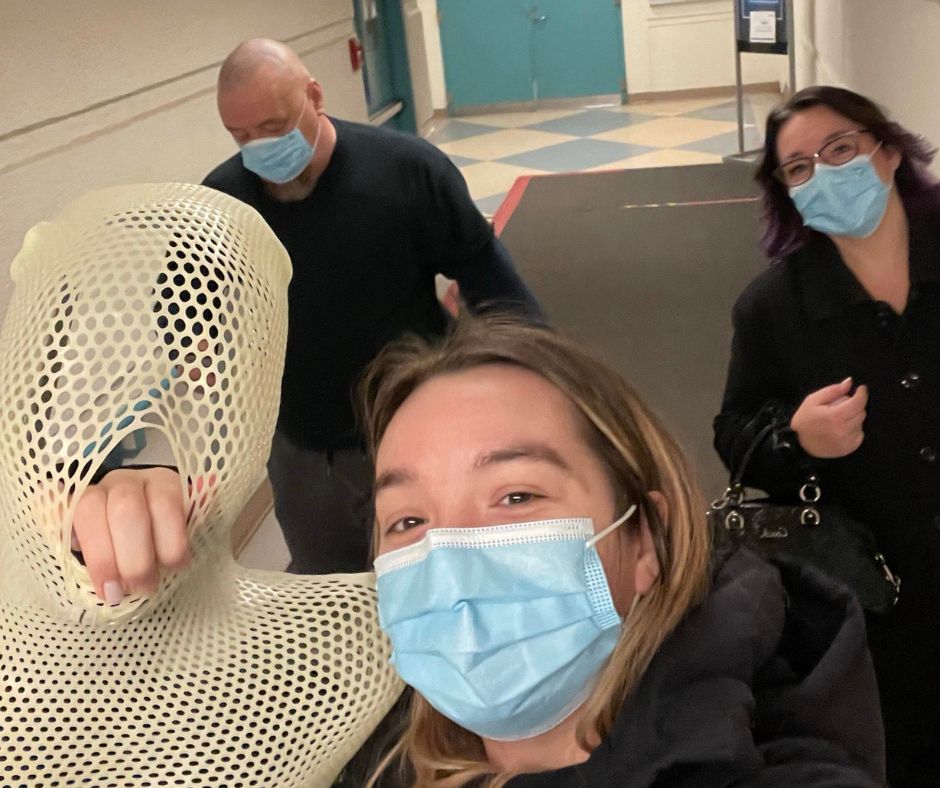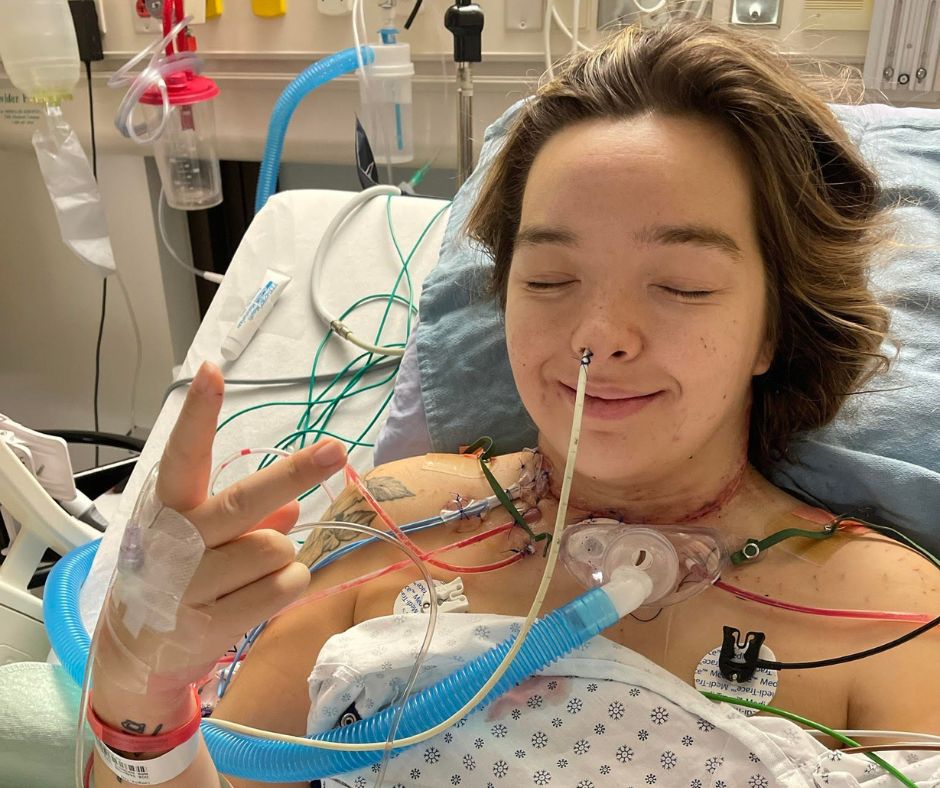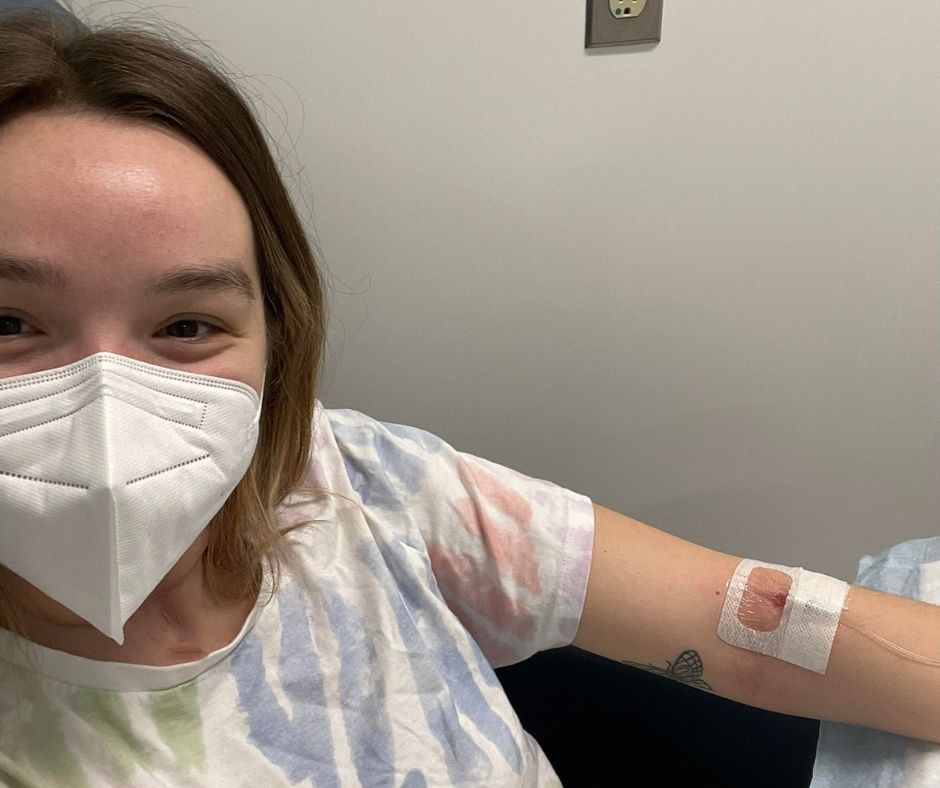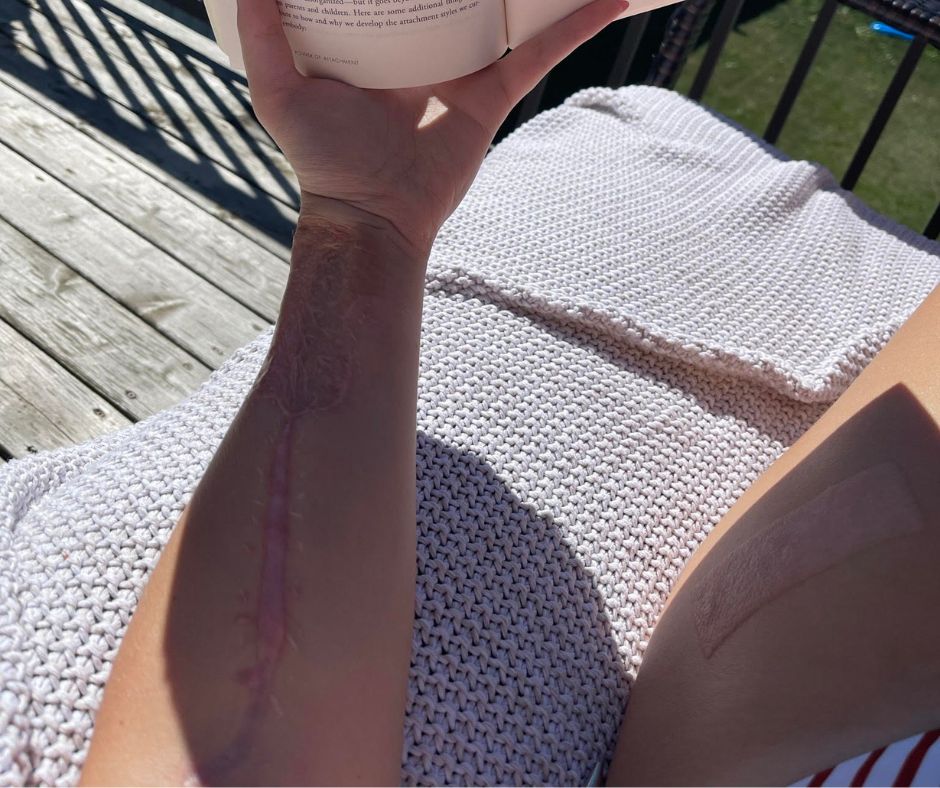Meet Tyra Langille | AYA Stage III Tongue Cancer Survivor
Meet Tyra Langille, a young adult tongue cancer survivor. Read on to hear her story, how she pushed through tongue reconstruction, and how she’s working towards her goal of returning to work soon.
What is your personal cancer story?
In 2021, I was diagnosed with Stage III oral / tongue cancer. This type of cancer is usually seen in older men, heavy drinkers, heavy smokers, or those previously diagnosed with HPV. I fit into none of those categories.
At the time of my diagnosis, I was a young 25-year-old woman who took extreme care of my body and was HPV negative. I fell into the category of the other 25% of tongue cancer patients, those who have absolutely no idea what could have caused it.
Having tongue cancer completely altered my world and physical appearance. I had surgery to remove half of my tongue, reconstructed the removed tongue section, had a full neck dissection, and completed 30 rounds of radiation. After all these surgeries and treatments, I had to re-teach myself how to speak, eat, and swallow.
Cancer definitely showed me who were my real friends, and who weren’t. Who cared and wanted to be there for me versus who just reached out to me so that they could say they reached out to me. It made a few of my relationships with folks quite rocky.
I can happily say that I’ve been in remission for 2 years now! I do check-ups with my team every 3 months and yearly scans. During my new survivorship journey, I have become a passionate patient advocate. I want to use my own cancer experiences to inspire and support others during their own cancer battles.
What are some physical/emotional challenges you faced during your cancer journey?
Speaking again was a major challenge for me. After my tongue reconstruction, I had to re-teach myself how to properly move my mouth to speak. After this type of surgery, it’s common to only speak out of one corner of your mouth instead of using your entire mouth. I wanted to learn how to speak using as much of my mouth as possible.
My entire body experiences periods of pain now, from nerve pain to general soreness. It does become difficult to live life freely when you’re stuck in bed due to a pain flare-up. I’m actively trying different things to ease these side effects, but it’s not an easy process. There’s a lot that I had to emotionally process after my diagnosis, starting a long journey of me constantly coming to terms with my “new normal.”
What misconceptions did you have about cancer?
Growing up, society and media teach you that cancer means a person is bald, brittle, and dying. In reality, that isn’t it at all. I went through my entire journey never looking “sick”. A cancer diagnosis isn’t a death sentence. Cancers also aren’t all age-specific, they may be more common in people from certain age groups, but anyone can be diagnosed with almost any type. I do not fit the picture of an average person with tongue cancer, but here I am. Cancer doesn’t care about age at all.
What kept you motivated during your cancer journey?
I found my voice during cancer treatment, even though I physically lost it because of the surgeries I underwent. Advocating for others motivates me. I want to be a voice for other young adult cancer patients. I also wanted to keep pushing through to bring awareness to this type of cancer, letting people know that it’s more than just older men who are diagnosed with it. Young people like myself can also get it.
Finding support groups was the most helpful for me. I found YACC (Young Adults Cancer Canada) who have helped me so much during my healing process. I also found a tongue cancer support group, Young Tongues. This group is full of 18 to 64-year-olds going through the same thing as me. It gave me so much of the information and support that I was lacking. Having a great support system also helps, they advocated for me when I couldn’t advocate for myself and supported me every step of the way.
How has your perspective on life changed?
Life is truly SHORT. We all say it, but when you have cancer and see your life plans crumble in front of you, you truly grasp the concept for the first time. You start to view things differently, only giving energy to important activities. We aren’t promised tomorrow, and every single day is a true gift.
How has your cancer experience affected your work life?
Having cancer affected my work life severely. Even after two years in remission, I’m still unable to return to the job I used to work. This has been very hard for me to come to terms with. Nevertheless, I’m actively working towards my goal of eventually being able to return to that position.
What message would you give newly diagnosed cancer patients?
Give yourself a true chance to breathe. So often through this journey, we are hit left, right, and center, without a spare moment to process what’s happening to us. It is overwhelming. You have to give yourself grace during this process. Allow yourself to feel, and cry when you need to cry. Don’t be strong for those around you, be what you need to be for YOURSELF. And then at the end of the day, pick yourself back up, and keep pushing.












I'm a young adult Stage III Cancer Survivor, advocating for other young adult oral cancer patients. Connect with me on IHadCancer @tylangille or Instagram @tdollxo!